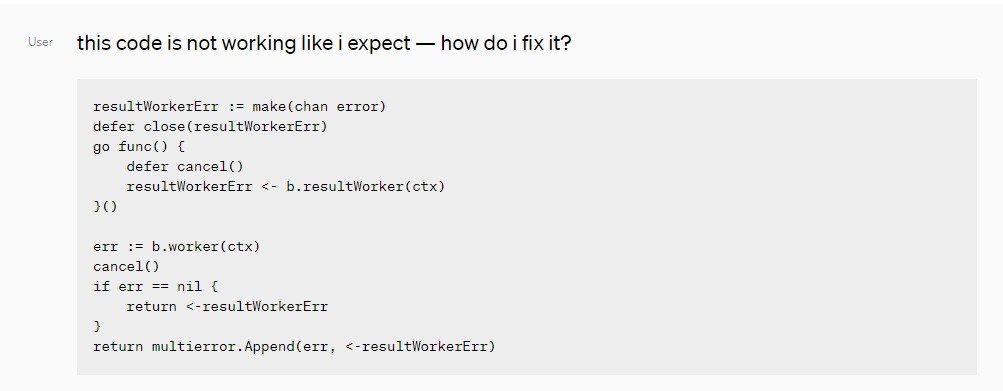Should University Students Use ChatGPT?
Written by Julia Yurchesyn
Thumbnail Photo by Jonathan Kemper on Unsplash
Have you heard about ChatGPT infiltrating people’s lives? This technology has been made available to anyone with access to a device and the internet. Likely, you have already used ChatGPT, either just for fun or maybe even to draft an email or two. What is the significance of this technology for students in particular? How does it fit into the university’s expectations of academic integrity? Should students never use it at all, or can it be used ethically? These are the questions I will be exploring in this article, so keep reading!
In case you actually have no idea what I’m talking about when I mention ChatGPT, it’s an online tool where the user can interact with AI and engage in a conversation of sorts. You can ask it to draft something like a poem, speech, or essay, or you can ask informative questions.
Because of its simplicity and versatility, ChatGPT has taken the world by storm. Its potential uses for students are obvious. However, it is revolutionizing the world of academia by raising questions about academic work, plagiarism and cheating. Let’s set the scene: it’s midnight, you have a 1500-word essay on Shakespeare’s Hamlet due the same day, and your Word document is practically empty—is it cheating to use ChatGPT to write the essay for you? Or let’s take a look at OpenAI’s website, where there’s an example of a user asking ChatGPT what’s wrong with some lines of code—if this were an assignment, would it be an academic offense?
Photo by OpenAI
Saint Mary’s University has organized a Faculty Roundtable regarding ChatGPT, which demonstrates the attitude that relying on ChatGPT to complete an assignment is academically unethical. For example, the online summary states that:
Many are concerned that ChatGPT will result in a surge in instances of plagiarism. This concern is legitimate, as the text ChatGPT provides has a degree of sophistication sufficient to appear as human. The writing produced is clear, coherent, personable, can present an argument and incorporate multiple viewpoints. While some strategies exist to identify text generated by AI, it is possible for a student to ask the AI to generate an ‘original’ essay, poem, or report, which they submit as their own work. (Studio for Teaching and Learning)
For reference, SMU’s Academic Integrity and Student Responsibility page defines plagiarism as “[t]he presentation of words, ideas or techniques of another as one's own. Plagiarism is not restricted to literary works and applies to all forms of information or ideas that belong to another (e.g., computer programs, mathematical solutions, scientific experiments, graphical images, or data).” Furthermore, we can also see that “improper use of technology” falls under cheating, “[t]he attempt to secure a grade by unethical means.” In light of this, if the professor requires the assignment to be original work constructed and completed solely by you, then I would argue that using ChatGPT would be unethical, according to the stipulations of SMU’s Academic Integrity and Student Responsibility page.
However, does this mean that ChatGPT is incongruous with higher education, that it is always wrong, and never okay to use it?
Interestingly, the Faculty Roundtable summary also mentions that:
The issue may not be the existence of the AI, but rather the manner students and researchers interact and use this tool. For example, the human user can ethically use the information generated by the AI to scaffold and support the gathering and synthesis of research when preparing an assignment for submission. The dialogue can provide a diagnostic to ensure a good degree of scope of research material has been factored in. (Studio for Teaching and Learning).
AI is here to stay, and it seems that it can be used ethically as a means to supplement your work and, more broadly speaking, your intellectual development. Indeed, we could make the argument that using ChatGPT to enhance our efforts instead of replacing them could improve the quality of research and knowledge that is being produced in academia. In this way, ChatGPT has huge potential, though as the Roundtable notes, “[t]he AI draws on information in existence and is limited to knowledge before 2021. The sources the AI draws on also are likely to contain bias, reflective of broader systemic inequities and power imbalances.” At least right now, ChatGPT has its limits.
Photo by Daria Nepriakhina 🇺🇦 on Unsplash
But in any case, I would always talk to your professor about using ChatGPT, simply because there does not seem to be an official consensus on the topic and professors will have differing opinions. If a professor says not to use it all, definitely follow those guidelines!
Another important idea to think about is what we want to get out of our education—if we’re paying tuition to acquire knowledge, why would we want to skip out on assignments? And does the desire to learn motivate us to use ChatGPT as a helpful ally that can help us to walk away from a class having learned something? Ultimately, using ChatGPT as a method of plagiarism/cheating is harmful to all parties, including the student.
So, should university students use ChatGPT for their studies? I think this depends on how we approach it. Are we looking to get an easy pass without doing the intellectual work ourselves, or are we hoping to supplement our learning? Are we in conversation with our professors about using this technology, or is our first instinct to hide the fact that we are using it? Let’s be honest with ourselves while simultaneously learning to adapt and embrace the new possibilities ChatGPT brings.


